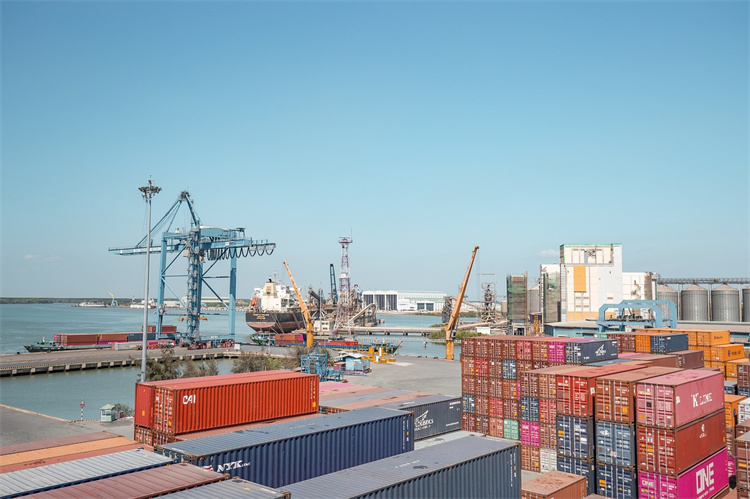Amazon SNP: Revolutionizing Seller Performance and Success on the Global E-commerce Giant

Amazon, a global leader in e-commerce and technology, has revolutionized the way people shop and do business online. With a market capitalization of $1.81 trillion, Amazon stands as one of the most influential companies worldwide. Understanding Amazon's Solution Provider Network (SNP) is crucial for sellers who aim to thrive on this platform. The Amazon SNP certification ensures that service providers meet high standards of excellence, offering comprehensive solutions to enhance seller performance. This knowledge empowers sellers to optimize their supply chain operations and succeed in the competitive Amazon marketplace.
Introduction to Amazon
Overview of Amazon
History and Growth
Amazon began in 1994 as an online bookstore. Jeff Bezos, the founder, envisioned a platform that would revolutionize retail. The company quickly expanded its product range beyond books. By 2004, Amazon introduced services like Free Super Savers Shipping, enhancing convenience for customers.
The launch of Amazon Prime in 2005 marked a significant milestone. This subscription service offered faster shipping and exclusive deals. Amazon continued to innovate with the introduction of Kindle e-readers in 2007. These devices transformed the way people consumed books.
Amazon Web Services (AWS) launched in 2006. AWS provided cloud computing solutions, shifting Amazon's focus towards enterprise services. The Fulfillment by Amazon (FBA) program also started around this time, allowing third-party sellers to use Amazon's logistics network.
Amazon's growth included strategic mergers and acquisitions. These moves expanded Amazon's reach into various industries. The launch of Amazon Fresh introduced grocery delivery services, further diversifying Amazon's offerings.
Business Model
Amazon operates on a customer-centric business model. The company prioritizes customer satisfaction through competitive pricing and fast delivery. Amazon's guiding principles include customer obsession, passion for invention, operational excellence, and long-term thinking.
Amazon's marketplace allows third-party sellers to list products alongside Amazon's own inventory. This model increases product variety and availability. The FBA program supports sellers by handling storage, packaging, and shipping.
AWS represents a significant revenue stream. Businesses use AWS for cloud computing, data storage, and other IT services. This diversification reduces Amazon's reliance on retail sales alone.
Amazon's Market Influence
Global Reach
Amazon's influence extends globally. The company operates in numerous countries, providing localized services. Amazon's international expansion includes markets in Europe, Asia, and South America. Each region benefits from tailored services and products.
Amazon's logistics network supports its global reach. The company uses advanced technologies like automation and robotics. These innovations improve speed and accuracy in order fulfillment. Amazon's supply chain efficiency sets a benchmark for the industry.
Impact on E-commerce
Amazon transformed the e-commerce landscape. The company's innovations created a modern category of retailing. Amazon's marketplace model allows small businesses to reach a vast audience. This democratizes access to global markets.
Amazon's commitment to reinvesting profits fuels continuous improvement. The company focuses on faster delivery and lower costs. These efforts enhance customer satisfaction and loyalty.
Amazon's influence extends to technological advancements. The development of AWS revolutionized cloud computing. Businesses across various sectors benefit from Amazon's technological infrastructure.
Amazon's impact on e-commerce is profound. The company's strategies and innovations shape the future of retail. Amazon's success story inspires other businesses to pursue excellence and innovation.
What is Amazon SNP?

Definition and Purpose
Explanation of Seller Performance Notification
Amazon's Seller Performance Notification (SNP) system plays a crucial role in maintaining the quality and reliability of its marketplace. Amazon Performance Notifications are direct messages sent to sellers. These notifications cover various topics, including policy warnings, suspension messages, listing deactivation notices, late shipments, order cancellations, customer complaints, and pricing concerns. By receiving these notifications, sellers can address issues promptly and maintain their standing on the platform.
Importance for Sellers
Understanding and responding to Amazon Performance Notifications is vital for sellers. These notifications help sellers comply with Amazon's strict performance standards and policies. Monitoring these metrics ensures sellers avoid penalties or account suspension for policy violations. Effective management of these notifications allows sellers to optimize their supply chain operations, enhancing overall performance and customer satisfaction.
How Amazon SNP Works
Criteria for Notifications
Amazon evaluates seller performance based on several key metrics. These metrics include order defect rate, late shipment rate, and pre-fulfillment cancel rate. Each of these metrics impacts the seller's ability to meet Amazon's high standards. For instance, a high order defect rate can lead to negative customer experiences, prompting Amazon to issue a notification. Sellers must maintain low rates in these areas to avoid receiving performance notifications.
Process and Procedures
When Amazon identifies a performance issue, the SNP system sends a notification to the seller. This notification outlines the specific problem and provides guidance on how to address it. Sellers must take immediate action to resolve the issue. Failure to do so can result in further penalties or even account suspension. By adhering to these procedures, sellers can ensure smooth operations and maintain a positive reputation on Amazon.
Case Study: JUSDASR

Background of JUSDASR
Company Overview
JUSDA Supply Chain Management International Co., Ltd. stands as a leading supply chain technology management platform service company. Foxconn Technology Group authorized JUSDA to provide comprehensive end-to-end supply chain solutions (C2M2C). The company integrates raw material procurement, manufacturing, and distribution, offering seamless services from the factory to the end consumer. JUSDA excels in lean supply chain management by leveraging advanced technologies such as big data, IoT, and cloud platforms.
Interaction with Amazon SNP
Steps Taken to Address Notifications
JUSDA implemented several measures to address the notifications received from Amazon SNP. The company focused on improving its supply chain operations to meet Amazon's performance metrics. Key steps included:
Enhancing Order Fulfillment: JUSDA optimized its logistics network to ensure timely deliveries. The company utilized advanced technologies like automation and robotics to improve speed and accuracy.
Reducing Defect Rates: JUSDA implemented strict quality control measures to minimize order defects. The company trained its staff to handle products with care and ensured proper packaging.
Improving Customer Service: JUSDA prioritized customer satisfaction by addressing complaints promptly. The company established a dedicated team to manage customer inquiries and resolve issues efficiently.
These efforts helped JUSDA align with Amazon's performance standards. The company successfully reduced the number of notifications received and improved its overall performance on the platform.
Why JUSDASR Obtained Amazon ASCPN Certification Precisely
Strategies Implemented
Compliance Measures
JUSDASR implemented several compliance measures to align with Amazon's stringent standards. The company established a dedicated team to monitor and address performance metrics. This team ensured adherence to Amazon's policies and guidelines. Regular audits and reviews helped identify areas for improvement. JUSDASR also invested in training programs to educate staff on best practices. These efforts ensured that operations remained compliant with Amazon's expectations.
Performance Improvements
JUSDASR focused on enhancing performance across various aspects of its supply chain. The company optimized logistics processes to ensure timely deliveries. Advanced technologies like automation and robotics improved order fulfillment speed and accuracy. JUSDASR also implemented strict quality control measures to reduce defect rates. A dedicated customer service team addressed inquiries and complaints promptly. These improvements resulted in a more efficient and reliable operation.
Results Achieved
Certification Process
The journey to obtaining the Amazon ASCPN certification involved a rigorous evaluation process. JUSDASR demonstrated extensive experience in e-commerce operations. The company showcased a stable and high-caliber professional team. Positive feedback from clients validated the quality of services provided. Amazon assessed JUSDASR's technology infrastructure and operational efficiency. The company met all criteria, proving its capability to offer comprehensive solutions.
Benefits of Certification
Obtaining the Amazon ASCPN certification brought numerous benefits to JUSDASR. The certification enhanced the company's reputation and credibility. Clients gained confidence in JUSDASR's ability to deliver high-quality services. The certification also opened new opportunities for collaboration with Amazon sellers. JUSDASR's improved performance metrics led to increased customer satisfaction. The company's commitment to excellence positioned it as a trusted partner in the Amazon marketplace.
Amazon's Seller Performance Notification (SNP) system plays a crucial role in maintaining the quality and reliability of its marketplace. Sellers must understand and respond to these notifications to comply with Amazon's performance standards. JUSDASR's success story illustrates the importance of adhering to these standards. The company faced challenges but implemented effective strategies to align with Amazon's expectations. Achieving the Amazon ASCPN certification brought numerous benefits, enhancing JUSDASR's reputation and performance. Adhering to Amazon's performance standards ensures business growth and customer satisfaction.
See Also
Unveiling JUSDA's Logistics Solutions in High-Tech Manufacturing Decoded
Revealing Cross-Border E-commerce Supplier Relationships' Innovative Solutions
Exploring Smart Logistic Systems Implementation: JUSDA's Case Study
Enhancing End-to-End Supply Chain Visibility: JUSDA's Efficiency Maximized
Delving Deep into Global Consumer Demands: Jusda's Supply Chains Explored
